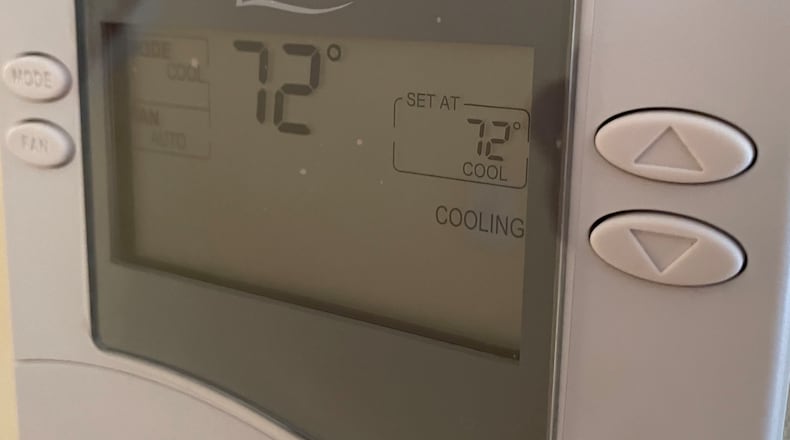MVCC Executive Director Jay Weiskircher said the sessions will provide an opportunity for issues to be addressed in person about changing suppliers.
The deadline to opt out of the program — which is projected to save average residential customers $350 a year and small businesses about $984 annually — is July 21.
One issue, Weiskircher said, involves those under contract with other suppliers, and the impact of ending those agreements.
“So, (for) people who have more specific and detailed questions like that, this is a good chance to get those questions answered,” he said.
Miamisburg City Manager Keith Johnson has heard that same concern. Johnson, who was on a five-member panel recommending Energy Harbor of Akron, called the MVCC’s agreement “the best possible deal” in the current energy market.
The 28-month contract signed last month charges 6.57 cents per kilowatt-hour (kWh) and starts Sept. 1.
The AES Ohio standard service offer as of June 1 was 10.807 cents per kWh.
The MVCC group includes Centerville, Clayton, Englewood, Fairborn, Germantown, Kettering, Miamisburg, Moraine, Trotwood, Vandalia and West Carrollton. Later this year the coalition also is expected to include Brookville, Eaton and Union, with Troy joining in 2024, records show.
The forums will include officials from Palmer Energy, the MVCC’s consultant in changing providers, officials said.
The two sessions are open to all cities in the MVCC group, officials said. They are scheduled as follows:
• Monday, 6:30-8:30 p.m., Charles I. Lathrem Center, 2900 Glengarry Drive, Kettering.
• Tuesday, 5-7 p.m., Sinclair Community College Centerville Campus, 5800 Clyo Road.
In recent weeks, letters explaining the change in suppliers went out to residents and small businesses, officials said.
The billing period for the current 11 members will start in September, according Palmer Energy.
For Brookville, Eaton and Union, the billing will start in October, while the start for Troy will be May 2024, Palmer records show.
In the past few years, dozens of local cities and townships have created energy aggregation programs, pooling the buying power of their residents and businesses in an effort to negotiate lower energy prices for them.
About the Author

